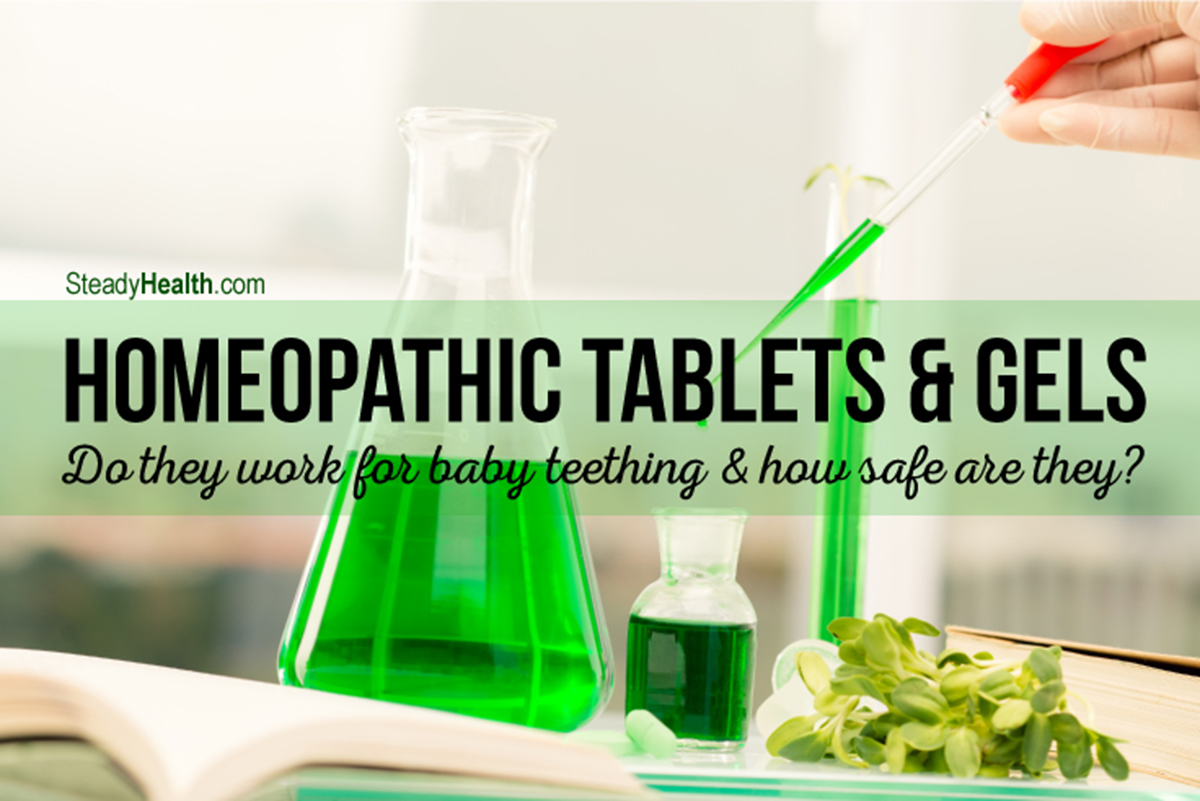What is homeopathy?
In theory, homeopathy shouldn't be dangerous because the active ingredient in the treatment is diluted so much that it's almost non-existent [1], but the reality is unfortunately much different. The core idea of homeopathy is that „like cures like,“ so they water down the poisons that mimic a disease being treated. Diluting is done until the product is safe for consumption. Allegedly!
There are many cases of babies being poisoned by homeopathy, not just by teething remedies, but also homeopathic remedies for colic, and jaundice.[2] And you'd think it should be a common sense that giving unregulated and unverified treatment to a baby isn't a good idea.

Why are homeopathic tablets and gels dangerous for my teething baby?
Homeopathic teething products are sold in many drug stores and retail outlets across the world but are mostly purchased online. Some of the well-known manufacturers of the controversial teething remedies including "Hyland's" have chosen to discontinue their teething products. Even though Hyland's has chosen to discontinue the controversial gels and tablets, they still claim that they are „safe for use [6]“, and can be purchased over various websites online, regardless of the official discontinuation.
What is wrong with belladonna plant?
Atropa Belladonna — also known as deadly nightshade — belongs to the Solanaceae family of plants, the family which includes some of our common food items such as tomatoes and potatoes. According to the FDA, belladonna has unpredictable effects on human health [7].
Belladonna got its name from the Italian language, meaning „beautiful lady,“ thanks to a dangerous practice that ladies in the past were going through to make their eyes beautiful. They'd put berry juice in the eyes to make pupils larger and more attractive. [8]
According to studies, there's serious lack of evidence on the benefits of belladonna, not only for teething pain, but other ailments too such as menstrual symptoms, peptic ulcer, irritable bowel syndrome, jaundice, and for many other plant's common uses. On the other hand, acute intoxication with belladonna is a severe condition, and the treatment includes gastrointestinal decontamination with activated charcoal and physostigmine antidote in severe cases. [9]
The belladonna berry looks similar to blueberry, which makes it even more dangerous since children may confuse the two — and just a couple of belladonna berries are potent enough to kill a small child. There are several reported cases of belladonna poisoning after mistaking its berries for blueberries [12], and the fact that it's thought that belladonna has been used in witchcraft practices in the past makes it even more wicked.
In conclusion
Teething pain and discomfort come and goes. Even though we all want the best for our children and hate seeing them in pain, it's better to wait for it to pass slowly instead of using potentially dangerous treatments. Homeopathic teething medications are proven dangerous, and by using them, you can put your baby's health at risk and cause more harm than teething pain does, and nobody wants that.
Even though experts are doing good work by warning against the potentially dangerous treatments, some of the homeopathic tablets and gels that may endanger lives are still around, and it's important to keep talking about them to raise the awareness.
If your baby is going through some nasty teething pain and you often go through sleepless nights, try giving a painkiller instead, but choose acetaminophen (paracetamol) or ibuprofen, as they're relatively safe for your baby, and even they shouldn't be on your regular teething remedies list. Here's a list of some dangerous painkillers you should never give to your baby! The best way to go through the teething pain is to love and caress your baby without stressing out, and offer natural remedies such as massage, a wet washcloth, or a good quality teething toy on a daily basis.
- Photo courtesy of SteadyHealth.com


Your thoughts on this